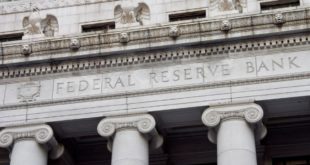With the government foolishly handicapping the oil and gas industries and pushing other alternatives, the future is not very bright.. Original Article: "What Will Our Energy Future Be? A Few Ideas" This Audio Mises Wire is generously sponsored by Christopher Condon. [embedded content] Tags: Featured,newsletter
Read More »The Failure of the Federal Reserve: The Covid Boom and Unnecessary Intervention
The Federal Reserve’s failure to meet its own policy goals of price stability and growth has become increasingly evident in the current economic situation in the United States. The country is now facing recessionary fears after experiencing historic inflation due to the misinterpretation of the causes of the Great Depression. The perverse effects of expansionary monetary policies also reflect the failure of the institutional economic position which regards the...
Read More »Phil Simon on Tectonic Changes in the Workplace
Austrian economics recognizes change as a constant and provides guidance for adapting to it and managing it. Change is changing for business — it’s faster and more fundamental in the digital age. Austrian economics can help even more as a result of its practical and realist approach to adaptation and continuous adjustment. Knowledge Capsule Change is changing. Change is a constant. You can think of the market in constant flux, as Mises did, You can think in...
Read More »Wars Cost More Than You Think
Ryan and Zachary talk about how wars are not nearly as cheap or economically harmless as many Americans seem to think. Rather, taxpayers must give up enormous amounts of resources to fund wars halfway across the globe that have little to do with actual defense. Americans are still paying interest on the trillions spent on Washington's many lost wars of recent decades. Additional Resources "On Paying for the Costs of War and War Loans" by Ludwig von Mises...
Read More »Cancel Culture: The Digital Panopticon
Like Bentham's panopticon, modern cancel culture is built upon fear and online bullying, making people police their own thoughts. Original Article: "Cancel Culture: The Digital Panopticon" This Audio Mises Wire is generously sponsored by Christopher Condon. [embedded content] Tags: Featured,newsletter
Read More »Waco 30 Years Later: It Is Not an Atrocity if the Feds Do It
Thirty years ago, FBI tanks smashed into the ramshackle home of the Branch Davidians outside Waco, Texas. After the FBI collapsed much of the building atop the residents, a fire erupted and 76 corpses were dug out of the rubble. Unfortunately, the American political system and media have never honestly portrayed the federal abuses and political deceit that led to that carnage. What lessons can today’s Americans draw from the FBI showdown on the Texas plains 30 years...
Read More »The Economics of Arts and Culture
To describe anything in human life without the context of economics is to erase the reasoning behind why it even exists. Why do we need reasons for items and concepts to exist? Because it is helpful for every human to think critically about what is truly valuable in society and to give that human the best possible information to best serve the public. The arts are a fantastic aspect of our culture that display the talents of individuals for everyone to enjoy. What...
Read More »Canada’s Impotent Justice System Is the Product of Dysfunctional Canadian Democracy
Violent crime is on the rise in Canada, and its progressive democracy is helpless to stop it. Further empowerment of the state makes things worse. Original Article: "Canada's Impotent Justice System Is the Product of Dysfunctional Canadian Democracy" This Audio Mises Wire is generously sponsored by Christopher Condon. [embedded content]...
Read More »From Discipline to No Discipline: The Sorry Evolution of Modern Banking
Every decade or so bank failures and the subsequent bailout response via central bank intervention appear. The latest jangling of depositor nerves involved US regional banks and a certain Swiss bank of great systemic importance. As James Grant writes in his book Bagehot: The Life and Times of the Greatest Victorian, “In economics, the most ostensibly rigorous of the social sciences, progress–and error, too–are cyclical; we keep stepping on the same rakes.” Sounding...
Read More »With the Trump Indictment, America Is a Step Closer to Being a Banana Republic
Democratic politicians and supporters are cheering the Trump indictment, but the entire process has been so politicized that its legitimacy is easily called into question. Original Article: "With the Trump Indictment, America Is a Step Closer to Being a Banana Republic" This Audio Mises Wire is generously sponsored by Christopher Condon. [embedded content]...
Read More » Swiss Economicblogs.org
Swiss Economicblogs.org




